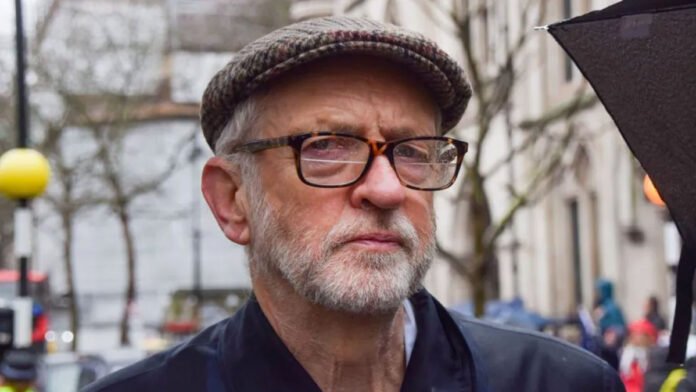Despite the Headlines, Jeremy Corbyn Has Not Announced a New Political Party
Despite breathless headlines and wishful speculation, Jeremy Corbyn has not launched a new political Party. He hasn’t announced one, endorsed one, or committed to leading one.
Earlier this May, over 200 people gathered in Huddersfield for what some hoped might signal the birth of something transformative. The People’s Alliance for Change and Equality (PACE) brought together a notable line-up: former Labour MP Claudia Webbe, former North of Tyne mayor Jamie Driscoll, Independent MP Iqbal Mohammed, Liverpool councillor Alan Gibbons, former Respect leader Salma Yaqoob, and, inevitably, Corbyn himself.
But PACE is not a political Party. It’s a local organising initiative aimed at connecting campaigns around council cuts, Palestine solidarity, and anti-racism in Kirklees. Its ambitions, for now, are strictly local, supporting grassroots independents in the 2026 council elections.
When the inevitable call for a new national left-wing Party rang out, as it always does at such gatherings, Corbyn’s response was familiar in both tone and substance:
“I hear the call for a new political Party. I fully understand that, and that political Party needs to be well-informed and effective…”
That’s not a commitment. It’s not even an endorsement. It’s an acknowledgement, one he’s made countless times over five years, without any concrete follow-through.
Still, that didn’t stop outlets like The Canary from running headlines claiming “Jeremy Corbyn suggests a new Party will be in place before 2026 elections.” It’s clickbait that muddies the waters. For those desperate for a serious political alternative, it raises hopes only to deflate them again. It doesn’t build momentum, it stalls it.
Let’s be clear: there is no new Party led by Jeremy Corbyn. No Party was launched in Huddersfield. No Party was promised. What we witnessed was another encouraging local initiative, another round of hopeful speeches, and yet more ambiguity from a man who has become something I never thought I’d say: a Waiting Room Attendant.
The Architecture of Paralysis

So what’s a political waiting room, and who are its attendants? Political waiting rooms are insidious spaces, designed not to inspire action but to contain it. Frustrated activists are gently ushered in, given comfortable seats, handed pamphlets about “what could be,” and told to wait. The attendant keeps the room running smoothly, just enough hope to prevent people leaving, just enough outrage to keep them talking, just enough legitimacy to make the whole charade feel worthwhile. It’s the Tory equivalent of building a shed and writing a book.
Whether he intends it or not, Corbyn has become the curator of political purgatory, a holding zone for the disillusioned left. He soothes, reassures, promises things are “coming together.” And people stay. They wait. They cling to hope that the man who once offered so much still has one final card to play.
The walls of that waiting room are padded with procrastination. Activists remain comfortable enough not to rebel, occupied enough not to build, and loyal enough to stay stuck. It’s a kindness trap, where the memory of hope replaces the hard graft of building something new.
But it’s all a holding pattern. A pacifier for the politically dispossessed.
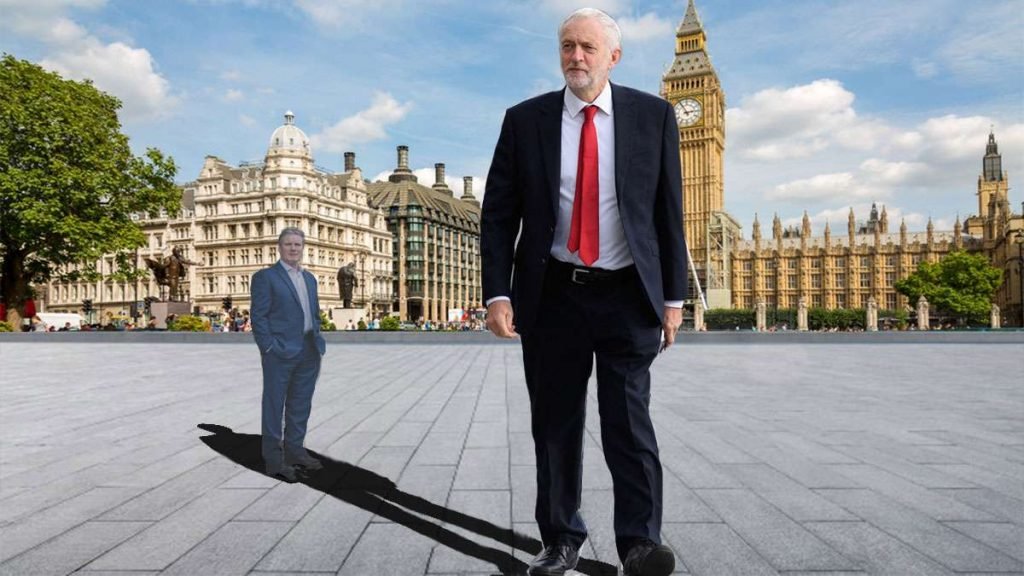
Since his Labour suspension, Corbyn has repeatedly flirted with new formations, always suggesting, never acting. Meanwhile, projects like Transform, Breakthrough, and the Preston Independents remain fragmented and marginal, and to be honest, in the main extremely liberal. Why? Because too many are still waiting. Waiting for Corbyn to lead.
It’s become something of an annual ritual, from the Justice and Peace initiative to the Collective, every year brings fresh rumours that Corbyn is finally forming a new party. Each time, hope is dangled just long enough to stall action, then quietly fades, leaving momentum to wither on the vine.
The Moment That Died
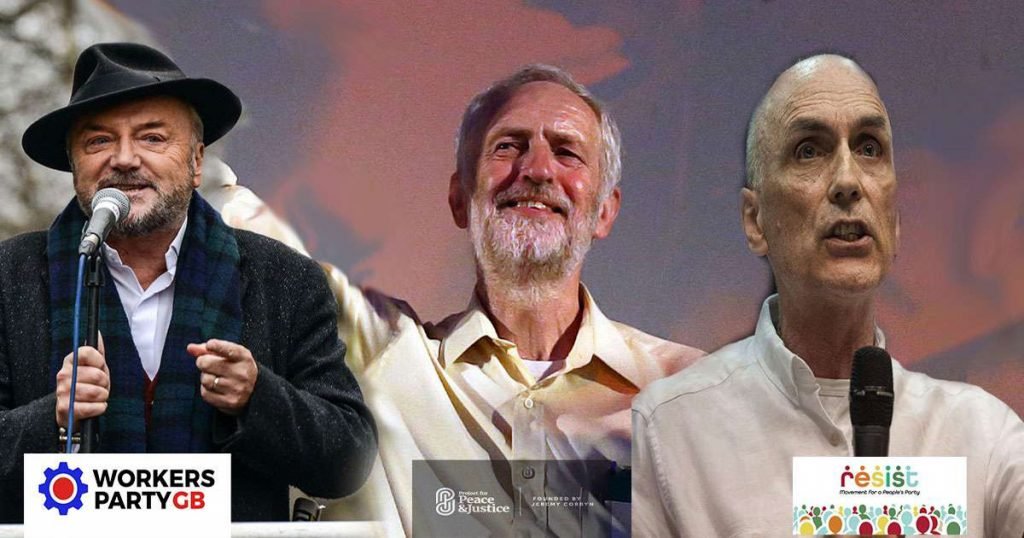
The brutal truth is that the window for a Corbyn-led Party that could have genuinely shifted Britain’s political axis has slammed shut. That moment, when millions rallied for change, when energy surged from grassroots to picket lines, was allowed to flicker and die.
He had the public. He had the mandate. He had concrete offers on the table.
The Workers Party of Britain didn’t just approach him, they offered him leadership on a silver platter. He turned it down flat. This wasn’t “build it and they will come.” It was built, and he refused to walk through the door.
But let’s not confuse principled activism with political leadership. After years of betrayal, sabotage, and relentless media attacks, it’s hardly surprising that Corbyn chose the picket line over Party politics. He didn’t retreat to write memoirs like discarded Tory leaders, he kept fighting. That deserves respect.
What doesn’t deserve respect is the collateral damage his indecision has caused.
The Price of Perpetual Deferral
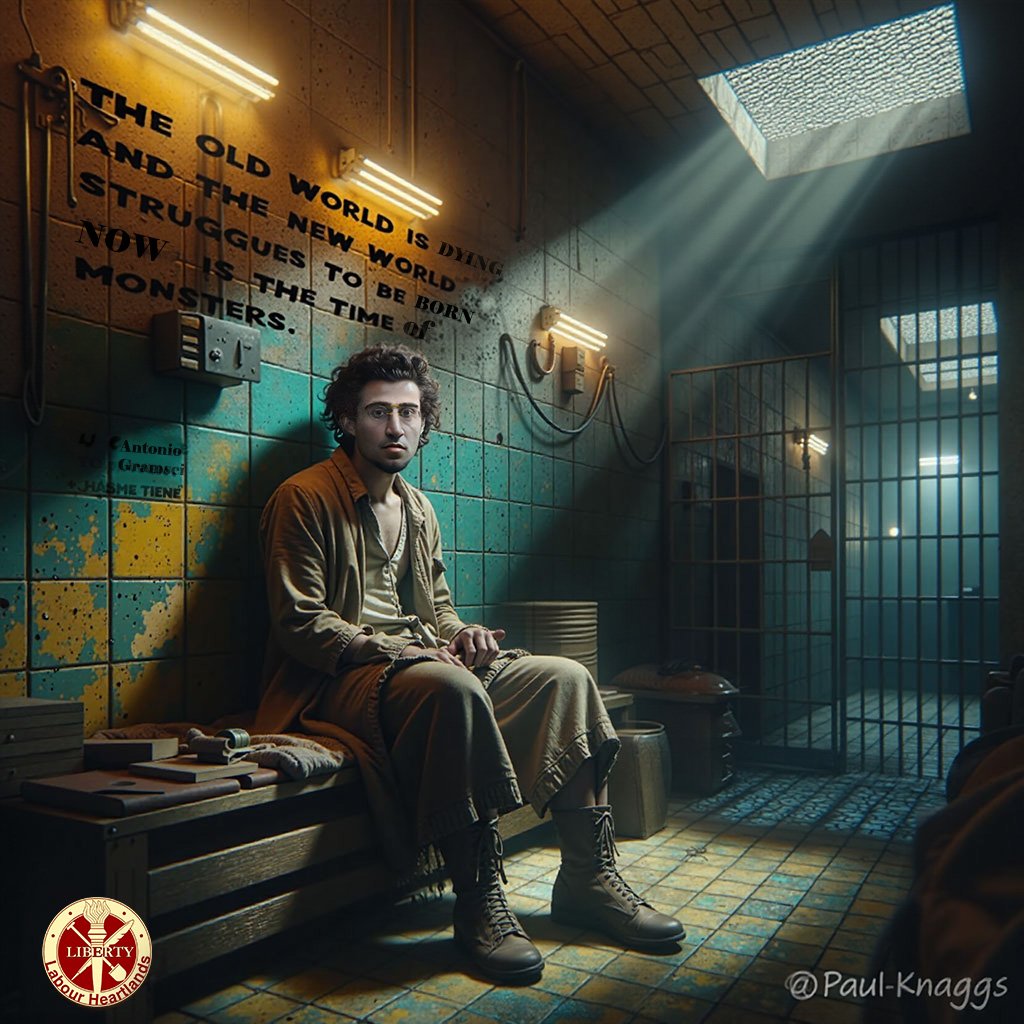
Right now, “Waiting for Jeremy” is the biggest obstacle to a new left-wing Party getting started. His shadow looms so large over the left that potential leaders, potential movements, potential parties all defer to the possibility that he might finally act.
He won’t. He’s made that abundantly clear through years of inaction when action was desperately needed.
The appetite for change is real. The anger at Starmer’s betrayals is genuine. But unless someone steps forward with serious national infrastructure, membership, and vision, nothing changes. Corbyn may “hear the call,” but he remains stubbornly on the sidelines.
Meanwhile, activists drift away, disillusioned, burnt out, or simply bored. Some find new waiting rooms. Others abandon politics altogether. The road to hell is paved with good intentions, but for too many on the British left, it ends in a waiting room where we are all still Waiting for Godot.
The Corrosive Kindness
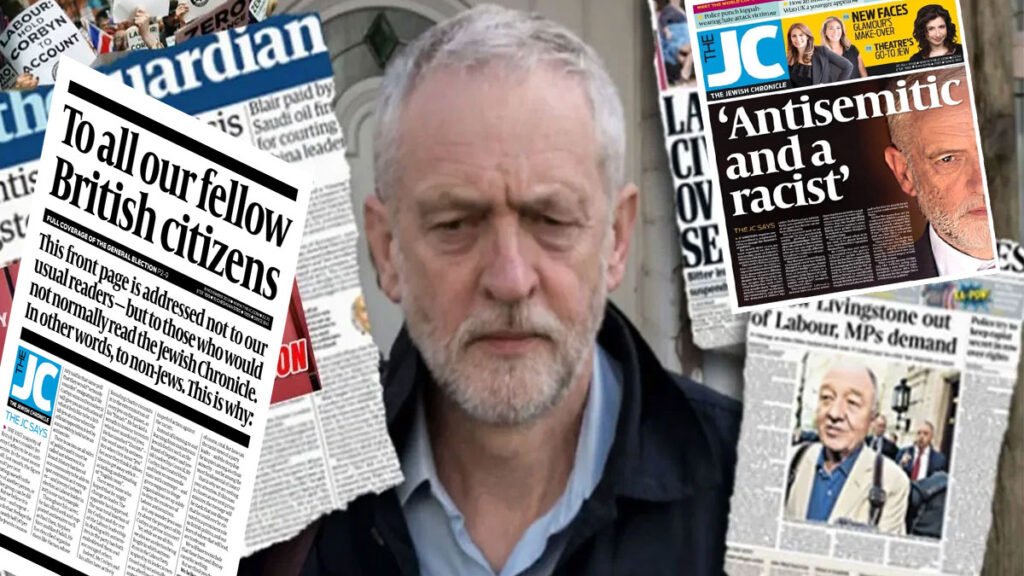
Don’t misunderstand me: Corbyn deserves our gratitude. He gave Britain the most transformative manifesto in living memory. He endured media assassination and internal sabotage without losing his decency. He lit a fire that should never be forgotten. He gave us hope, he inspired and inspires.
But we must stop mistaking nostalgia for direction.
The abuse Jeremy receives is vile and unjustified. But the misplaced hope he now prolongs is quietly corrosive. People don’t need more waiting rooms, they need doors. They need movements with momentum and plans with capital letters. Above all, they need it now.
Not a few months before next year’s local elections. Not after another year of Red Tory rule. Not once the disillusioned have wandered off for good.
Breaking Free
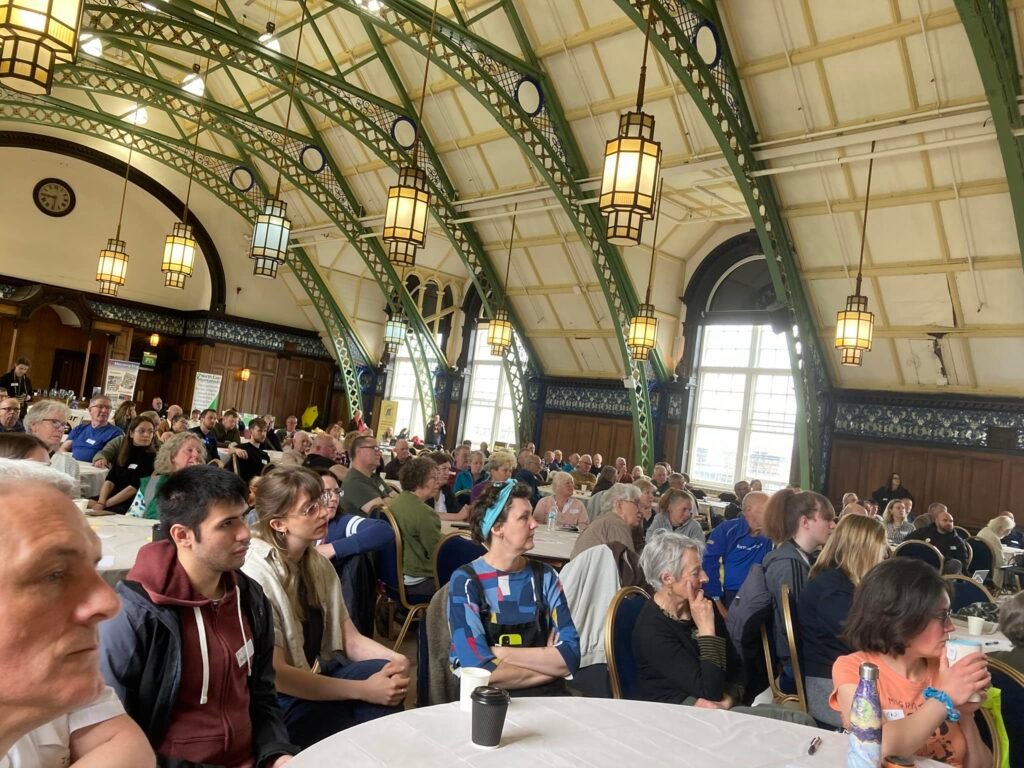
We can honour what Corbyn represented without waiting for him to make a move he clearly doesn’t want to make. We can respect his contribution without being trapped by his hesitation.
I’m inspired by the work Jamie Driscoll is doing in the North of England, I’m thrilled at the fight burning in the hearts of left wing activist willing to take on Tories of all colours.
But the future isn’t in that waiting room, no matter how comfortable the chairs or how inspiring the pamphlets. It’s outside, with those building something bold enough to walk away from the endless wait.
The left needs to stop being polite about this. Stop hoping Jeremy will change his mind. Stop deferring to a man who had his moment and chose contemplation over action.
Eventually, the occupants of every waiting room face the same choice: remain seated in the hope that their number will finally be called, or stand up and walk out.
The attendant will always encourage you to stay. That’s what attendants do. But the exit door isn’t locked. It never was.
The waiting room is closing. It’s time to find the exit and build a new Party, or join one of the many emerging alternatives already taking shape. Waiting makes you powerless. Action doesn’t.
And if I’m wrong, as my wife often tells me I am, you can always leave later and join Corbyn’s Party when it finally materialises.
But I wouldn’t hold my breath.
Support Independent Journalism Today
Our unwavering dedication is to provide you with unbiased news, diverse perspectives, and insightful opinions. We're on a mission to ensure that those in positions of power are held accountable for their actions, but we can't do it alone. Labour Heartlands is primarily funded by me, Paul Knaggs, and by the generous contributions of readers like you. Your donations keep us going and help us uphold the principles of independent journalism. Join us in our quest for truth, transparency, and accountability – donate today and be a part of our mission!
Like everyone else, we're facing challenges, and we need your help to stay online and continue providing crucial journalism. Every contribution, no matter how small, goes a long way in helping us thrive. By becoming one of our donors, you become a vital part of our mission to uncover the truth and uphold the values of democracy.
While we maintain our independence from political affiliations, we stand united against corruption, injustice, and the erosion of free speech, truth, and democracy. We believe in the power of accurate information in a democracy, and we consider facts non-negotiable.
Your support, no matter the amount, can make a significant impact. Together, we can make a difference and continue our journey toward a more informed and just society.
Thank you for supporting Labour Heartlands
